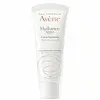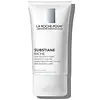What's inside
What's inside
 Key Ingredients
Key Ingredients

 Benefits
Benefits

 Concerns
Concerns

 Ingredients Side-by-side
Ingredients Side-by-side

Water
Skin ConditioningParaffinum Liquidum
EmollientGlycerin
HumectantIsohexadecane
EmollientDimethicone
EmollientCetearyl Alcohol
EmollientCarthamus Tinctorius Seed Oil
MaskingIsocetyl Stearoyl Stearate
EmollientPEG-100 Stearate
1,2-Hexanediol
Skin ConditioningButyrospermum Parkii Butter
Skin ConditioningCetearyl Glucoside
EmulsifyingBenzoic Acid
MaskingBeta-Sitosterol
Emulsion StabilisingBHT
AntioxidantDisodium EDTA
Parfum
MaskingPolyacrylate-13
Polyisobutene
Polysorbate 20
EmulsifyingSodium Hydroxide
BufferingSorbitan Isostearate
EmulsifyingXanthan Gum
EmulsifyingWater, Paraffinum Liquidum, Glycerin, Isohexadecane, Dimethicone, Cetearyl Alcohol, Carthamus Tinctorius Seed Oil, Isocetyl Stearoyl Stearate, PEG-100 Stearate, 1,2-Hexanediol, Butyrospermum Parkii Butter, Cetearyl Glucoside, Benzoic Acid, Beta-Sitosterol, BHT, Disodium EDTA, Parfum, Polyacrylate-13, Polyisobutene, Polysorbate 20, Sodium Hydroxide, Sorbitan Isostearate, Xanthan Gum
Water
Skin ConditioningGlycerin
HumectantButyrospermum Parkii Butter
Skin ConditioningCyclohexasiloxane
EmollientPrunus Armeniaca Kernel Oil
MaskingPentaerythrityl Tetraethylhexanoate
EmollientIsohexadecane
EmollientZea Mays Starch
AbsorbentSilica
AbrasiveHydroxypropyl Tetrahydropyrantriol
Skin ConditioningCera Alba
EmollientStearic Acid
CleansingDimethicone
EmollientPalmitic Acid
EmollientPEG-100 Stearate
Glyceryl Stearate
EmollientPropylene Glycol
HumectantPEG-20 Stearate
EmulsifyingBis-PEG-18 Methyl Ether Dimethyl Silane
EmollientStearyl Alcohol
EmollientDimethiconol
EmollientArginine PCA
HumectantSerine
MaskingDisodium EDTA
Hydrolyzed Linseed Extract
Skin ConditioningAcetyl Dipeptide-1 Cetyl Ester
Skin ConditioningPolysorbate 80
EmulsifyingAcrylamide/Sodium Acryloyldimethyltaurate Copolymer
Emulsion StabilisingPentaerythrityl Tetra-Di-T-Butyl Hydroxyhydrocinnamate
AntioxidantSodium Benzoate
MaskingPhenoxyethanol
PreservativeBenzoic Acid
MaskingParfum
MaskingWater, Glycerin, Butyrospermum Parkii Butter, Cyclohexasiloxane, Prunus Armeniaca Kernel Oil, Pentaerythrityl Tetraethylhexanoate, Isohexadecane, Zea Mays Starch, Silica, Hydroxypropyl Tetrahydropyrantriol, Cera Alba, Stearic Acid, Dimethicone, Palmitic Acid, PEG-100 Stearate, Glyceryl Stearate, Propylene Glycol, PEG-20 Stearate, Bis-PEG-18 Methyl Ether Dimethyl Silane, Stearyl Alcohol, Dimethiconol, Arginine PCA, Serine, Disodium EDTA, Hydrolyzed Linseed Extract, Acetyl Dipeptide-1 Cetyl Ester, Polysorbate 80, Acrylamide/Sodium Acryloyldimethyltaurate Copolymer, Pentaerythrityl Tetra-Di-T-Butyl Hydroxyhydrocinnamate, Sodium Benzoate, Phenoxyethanol, Benzoic Acid, Parfum
 Reviews
Reviews

Ingredients Explained
These ingredients are found in both products.
Ingredients higher up in an ingredient list are typically present in a larger amount.
Benzoic Acid is used to preserve and adjust the pH of products.
The antimicrobial property of Benzoic Acid helps elongate a product's shelf life. Its main role is to reduce fungi growth and is not found to be effective at fighting bacteria. Therefore Benzoic Acid is always added along with other preservatives.
In its pure form, Benzoic Acid looks like a white crystalline solid. It has slight solubility in water.
The name of Benzoic Acid comes from gum benzoin, which used to be the sole source of deriving this ingredient. Benzoic Acid is the most simple aromatic carboxylic acid.
Benzoic Acid is naturally occuring in strawberries, mustard, cinnamon, and cloves. It has a slight scent but is not considered to be a fragrance.
Learn more about Benzoic AcidThis ingredient is also known as shea butter. It is an effective skin hydrator and emollient.
Emollients help soothe and soften your skin. It does this by creating a protective film on your skin. This barrier helps trap moisture and keeps your skin hydrated. Emollients may be effective at treating dry or itchy skin.
Shea butter is rich in antioxidants. Antioxidants help fight free-radicals, or molecules that may harm the body. It is also full of fatty acids including stearic acid and linoleic acid. These acids help replenish the skin and keep skin moisturized.
While Shea Butter has an SPF rating of about 3-4, it is not a sunscreen replacement.
Shea butter may not be fungal acne safe. We recommend speaking with a professional if you have any concerns.
Learn more about Butyrospermum Parkii ButterDimethicone is a type of synthetic silicone created from natural materials such as quartz.
What it does:
Dimethicone comes in different viscosities:
Depending on the viscosity, dimethicone has different properties.
Ingredients lists don't always show which type is used, so we recommend reaching out to the brand if you have questions about the viscosity.
This ingredient is unlikely to cause irritation because it does not get absorbed into skin. However, people with silicone allergies should be careful about using this ingredient.
Note: Dimethicone may contribute to pilling. This is because it is not oil or water soluble, so pilling may occur when layered with products. When mixed with heavy oils in a formula, the outcome is also quite greasy.
Learn more about DimethiconeDisodium EDTA plays a role in making products more stable by aiding other preservatives.
It is a chelating agent, meaning it neutralizes metal ions that may be found in a product.
Disodium EDTA is a salt of edetic acid and is found to be safe in cosmetic ingredients.
Learn more about Disodium EDTAGlycerin is already naturally found in your skin. It helps moisturize and protect your skin.
A study from 2016 found glycerin to be more effective as a humectant than AHAs and hyaluronic acid.
As a humectant, it helps the skin stay hydrated by pulling moisture to your skin. The low molecular weight of glycerin allows it to pull moisture into the deeper layers of your skin.
Hydrated skin improves your skin barrier; Your skin barrier helps protect against irritants and bacteria.
Glycerin has also been found to have antimicrobial and antiviral properties. Due to these properties, glycerin is often used in wound and burn treatments.
In cosmetics, glycerin is usually derived from plants such as soybean or palm. However, it can also be sourced from animals, such as tallow or animal fat.
This ingredient is organic, colorless, odorless, and non-toxic.
Glycerin is the name for this ingredient in American English. British English uses Glycerol/Glycerine.
Learn more about GlycerinIsohexadecane is added to enhance texture, emulsify, and to help cleanse. It is an isoparrafin. It is a component of petrolatum.
Due to its large size, Isohexadecane is not absorbed by the skin. Instead, it sits on top and acts as an emollient. Emollients help keep your skin soft and smooth by trapping moisture within.
Isohexadecane is often used in products designed to help oily skin. It is lightweight and non-greasy while helping to moisturize. When mixed with silicones, it gives a product a silky feel.
Learn more about IsohexadecaneParfum is a catch-all term for an ingredient or more that is used to give a scent to products.
Also called "fragrance", this ingredient can be a blend of hundreds of chemicals or plant oils. This means every product with "fragrance" or "parfum" in the ingredients list is a different mixture.
For instance, Habanolide is a proprietary trade name for a specific aroma chemical. When used as a fragrance ingredient in cosmetics, most aroma chemicals fall under the broad labeling category of “FRAGRANCE” or “PARFUM” according to EU and US regulations.
The term 'parfum' or 'fragrance' is not regulated in many countries. In many cases, it is up to the brand to define this term.
For instance, many brands choose to label themselves as "fragrance-free" because they are not using synthetic fragrances. However, their products may still contain ingredients such as essential oils that are considered a fragrance by INCI standards.
One example is Calendula flower extract. Calendula is an essential oil that still imparts a scent or 'fragrance'.
Depending on the blend, the ingredients in the mixture can cause allergies and sensitivities on the skin. Some ingredients that are known EU allergens include linalool and citronellol.
Parfum can also be used to mask or cover an unpleasant scent.
The bottom line is: not all fragrances/parfum/ingredients are created equally. If you are worried about fragrances, we recommend taking a closer look at an ingredient. And of course, we always recommend speaking with a professional.
Learn more about ParfumPeg-100 Stearate is an emollient and emulsifier. As an emollient, it helps keep skin soft by trapping moisture in. On the other hand, emulsifiers help prevent oil and water from separating in a product.
PEGS are a hydrophilic polyether compound . There are 100 ethylene oxide monomers in Peg-100 Stearate. Peg-100 Stearate is polyethylene glycol ester of stearic acid.
Water. It's the most common cosmetic ingredient of all. You'll usually see it at the top of ingredient lists, meaning that it makes up the largest part of the product.
So why is it so popular? Water most often acts as a solvent - this means that it helps dissolve other ingredients into the formulation.
You'll also recognize water as that liquid we all need to stay alive. If you see this, drink a glass of water. Stay hydrated!
Learn more about Water